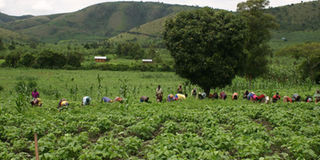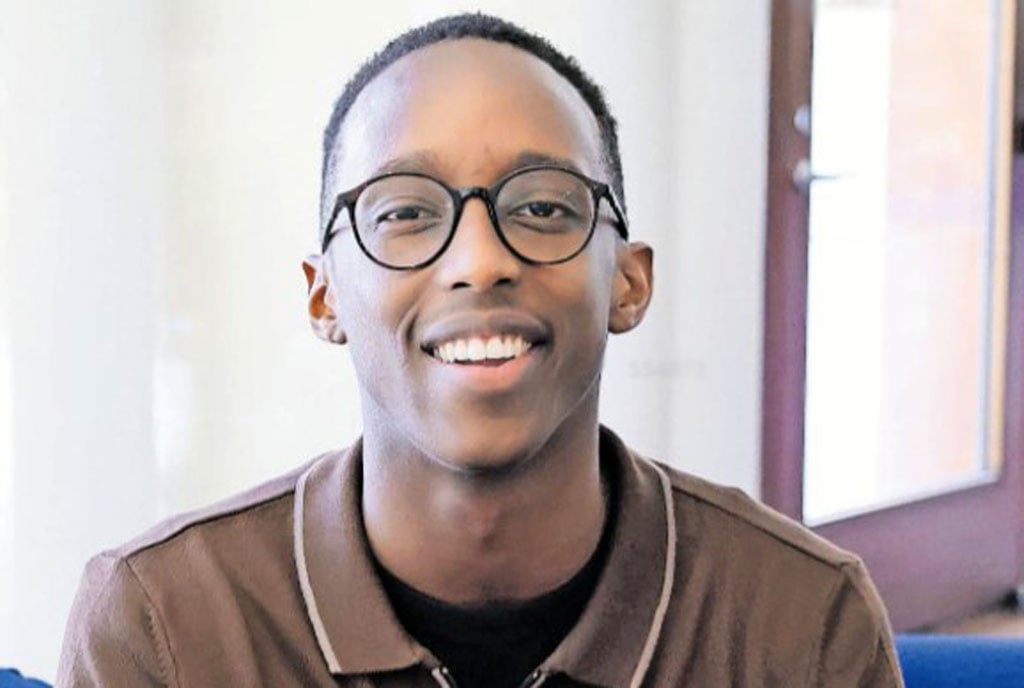Prime
Counting the benefits of growing soya bean

Farm workers weeding the soya bean garden. Photo by Otushabire Tibyangye.
He is no stranger to working hard since he has to fend for a large family and has always known that hard work pays. His reputation as a model farmer led him to be elected LC chairman of Ruhiira village in Nyakitunda Sub-county, Isingiro District, a position he held for five years–before eventually becoming the local council leader for the parish–a position he has held for 10 years.
Geoffrey Nsiimire owes his success to growing soya beans, an idea introduced to his village by Millienium Villages project (MVP).
The project provided high-value, nutrition-rich soya bean seeds to farmers in Nyakitunda and Kabuyanda Sub-counties, which have had a big impact on the locals. For Nsiimire, the impact chain is simple: “Better seeds means higher income which means school fees, better education”. As local council chairman, his words accurately sum not only his own views, but also reflect those of his community.
“I had never grown soya before, I had not even heard of it in a long time. But after [MVP] provided us with training and sensitisation on its high income and high nutrition values, I was enthusiastic so decided to grow it on half an acre of land as an experiment to see how much I could get out,” he said.
Since the inception of the project in 2008, he has increased the area under soya to two acres because of the high yields he has realised.
In 2008, he was given 60kg of seeds, and he harvested 450kg which he says was a bumper harvest. He sold 400kg, which was supplied by World Food Programme to the nearby refugee camps. He used the income to buy a boda boda motorcycle.
“Attending district meetings is no longer the weekly struggle, I now always make it easily and it is also benefitting the community as now no one who is in need of treatment can fail to reach the health clinic. I can also take my children to school in Mbarara. I am a free taxi for the community,” Nsiimire said.
Also, their diet nows includes soya which is mixed with maize. “Although my children and others in our community used to suffer from malnutrition, this soya has helped bring our children back to being healthy,” he says.
Nsiimire has also dedicated three of his eight farm workers to focus solely on soya as opposed to tending to his other crops; maize, matooke, fruits and vegetables, as he has seen the effort has paid off.
One of the challenges Nsiimire faces is weeding as sometimes labour is in scarcity because during the weeding season most of the workers are engaged in their gardens.
“The advantage I have is that I have a large family, which supplements my three workers during the planting, weeding and harvesting seasons,” he says.
He is optimistic of earning big from soya growing because of an assured market for the produce because he sells collectively to a market provided by MVP through patterning with AGRA. So the challenge of connecting to markets has been narrowed.




